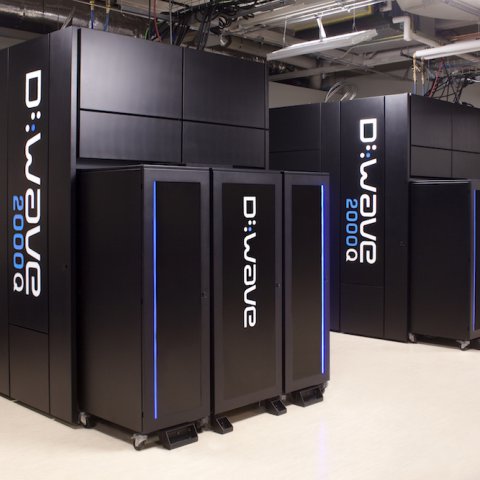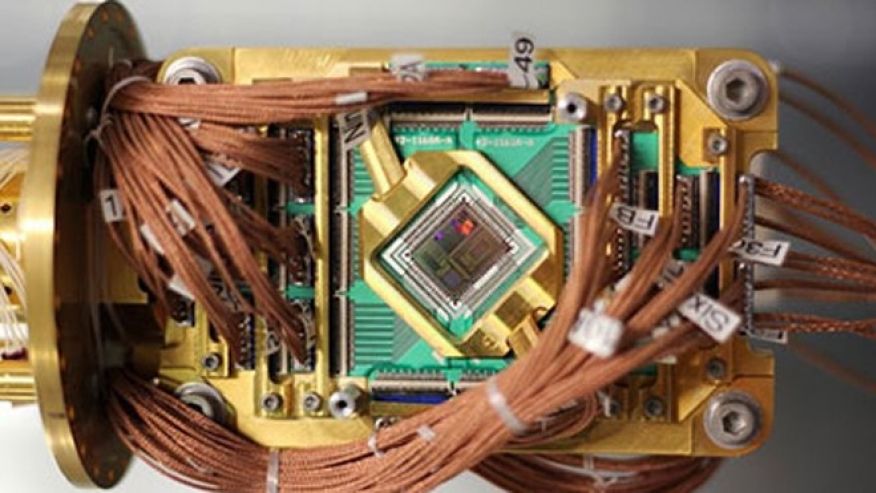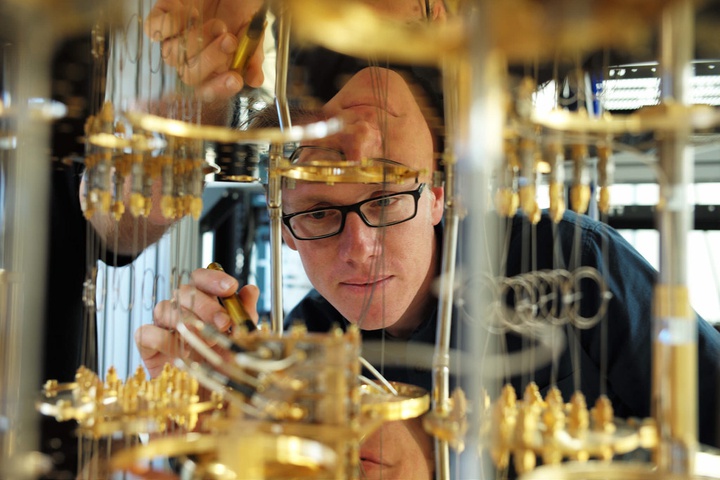
Supercomputers are quietly changing the world. They aid in important scientific research, help us understand weather and the changing climate, and create simulations that lead to breakthroughs in engineering. And now we're seeing the next stage in their evolution.
At first, quantum computers could only work with small amounts of data, only able to do the simplest of math problems. But their power has been growing, and now quantum supercomputers are being built to perform tasks of immense complexity.
Seriously competent people are working on improving quantum computers, like the Quantum Artificial Intelligence Lab, a joint effort by NASA, Google, and D-Wave Systems. They've been at work since 2013, upgrading their systems as new tech becomes available. And now China is stepping into the ring with their own quantum supercomputer, using an entirely different approach than that taken by D-Wave.
If progress continues, we can expect to see quantum supercomputers overtaking traditional supercomputers. They'll have an even more profound impact on the world, so it's best to learn a bit (or a qubit!) about them. You'll understand that corny joke soon.
What are Quantum Computers?
At the subatomic level, particles like electrons spin around - but they actually spin in every direction at the same time. They can also be in multiple places at the same time, among other violations of everyday reality. It's weird, but quantum physics simply doesn't make sense in the way that we know it – yet this is how the universe works, as well as we understand.
Quantum computers work by taking advantage of these strange truths of quantum physics. Subatomic particles are doing many things at the same time, and quantum computers can tap into that to perform many calculations at the same time, in parallel. That's where they derive their incredible processing power. They have to be kept at very cold temperatures, just above absolute zero, to coax out these strange properties from particles.
But hey, you should probably let an actual physicist explain:
The primary distinction between regular computers and quantum computers is that regular computers use bits, which can be either zero or one. But quantum computers use “qubits,” which can be zero, one, or both at the same time. This is known as a “superposition” of the two states, kind of like a “maybe” state. By making use of the superposition of qubits, quantum computers can perform an incredible number of calculations at the same time.
Confused? You aren't the only one.

Image credit: D-Wave Systems
Here's a slightly different take. A professor once told me, the only interpretation of quantum computers that he understood was that they actually work by performing calculations in multiple dimensions at the same time. As he explained, computers in an infinite number of alternate dimensions all perform the calculation and share the results, and that's where the immense parallel processing power comes from. Far from a fringe theory, this is actually known as the Many-Worlds Interpretation (MWI) of quantum physics.
There are many interpretations of quantum physics, and the MWI isn't really the most popular. Nevertheless, however they do it, the fact is that quantum computers work.
The Power of Quantum Computers
The processing power of quantum computers can't really be imagined. Geordie Rose is the founder of D-Wave Systems, a company that designs quantum computers for clients like Google, NASA, and Lockheed Martin. In an interview with Muon Ray, he explains that quantum computers have exponentially more power than regular computers.
While a regular computers uses 8 bits to store a single number, a quantum computer can use 8 qubits to store 256 different numbers. With 100 qubits, you can store 1,267,650,600,228,229,401,496,703,205,376 numbers!!
According to Geordie Rose, “So by the time you get to about 500 bits, you have more possibilities than there are atoms in the visible universe.”
And how powerful is their latest product, the D-Wave Two? It uses an astounding 512 qubits. It also costs $15 million and stands 10 feet tall.

Image credit: D-Wave Systems
This processing power opens the door to simulations and computations that were once impossible. Computations that would take longer than the age of the universe with a regular computer can be done in a reasonable amount of time with a quantum computer.
A wide variety of fields stand to benefit from these new computers – AI research, engineering, medicine, financial services, and supply chain logistics, to name just a few. Quantum computers are great for optimization problems, like the classic traveling salesman problem. They can analyze an extremely complex situation, taking a wide variety of factors into account to provide insights on the best actions to take.

Image credit: Fox News
This data processing power can be aimed in practically any direction. Quantum computers are capable of simulating the behavior of subatomic particles, breaking strong encryptions that would be otherwise impenetrable, and performing quality control on software that consists of millions of lines of code. They're lightning-fast hackers, working through encrypted data almost instantly. Their power is also useful for building better weather and climate models, for air traffic control, and for forensics science. Keep looking, and you'll keep finding more applications.
Who knows what else we might learn with this kind of computational power? If we can bring them to bear on social and psychological problems, the insights we learn about ourselves might be shocking and revolutionary. Perhaps one day we can even use them to generate and study quantum effects on a human scale, rather than a primarily subatomic scale. The future is bright and practically unlimited for the world of quantum computers.








